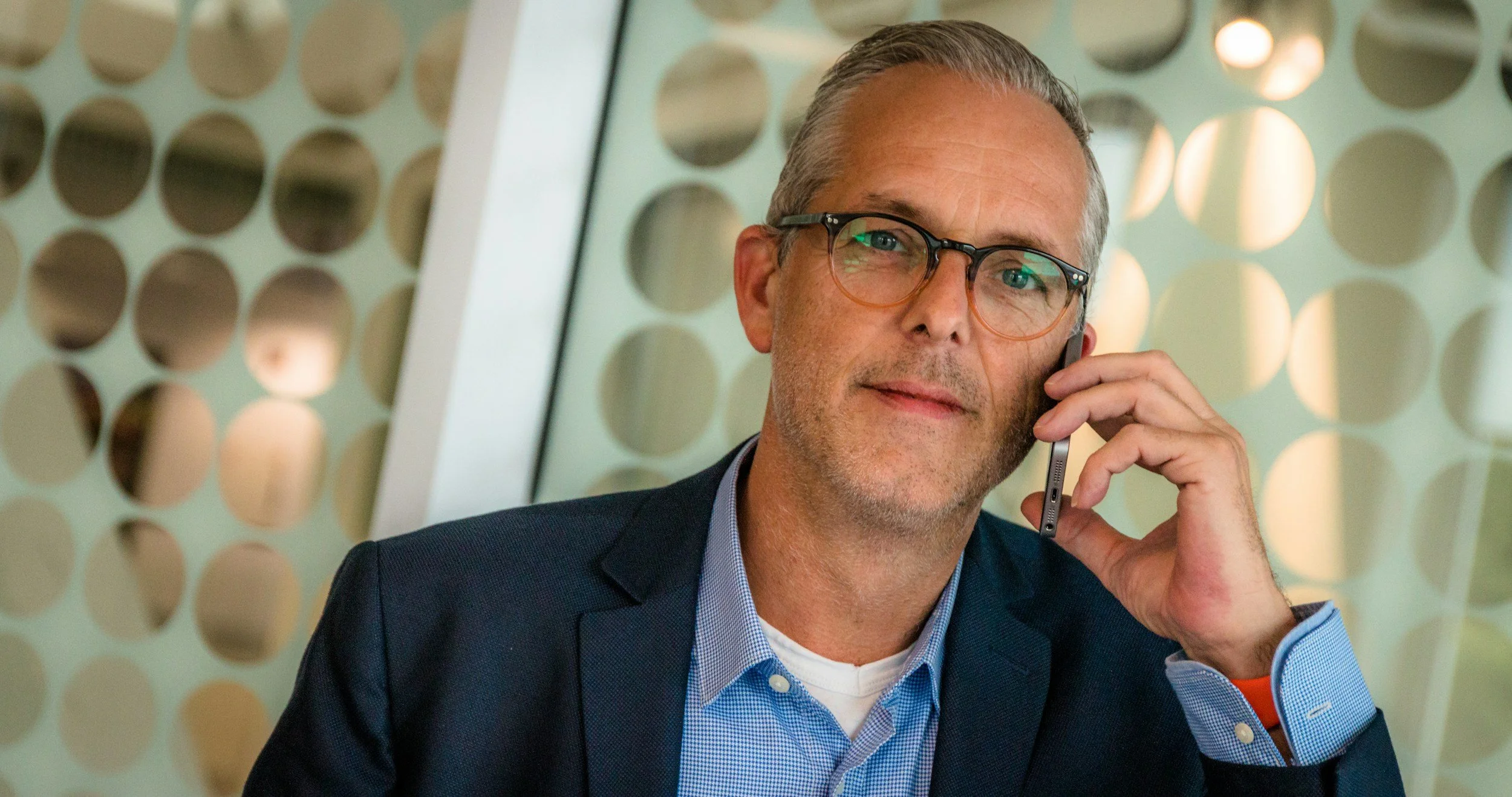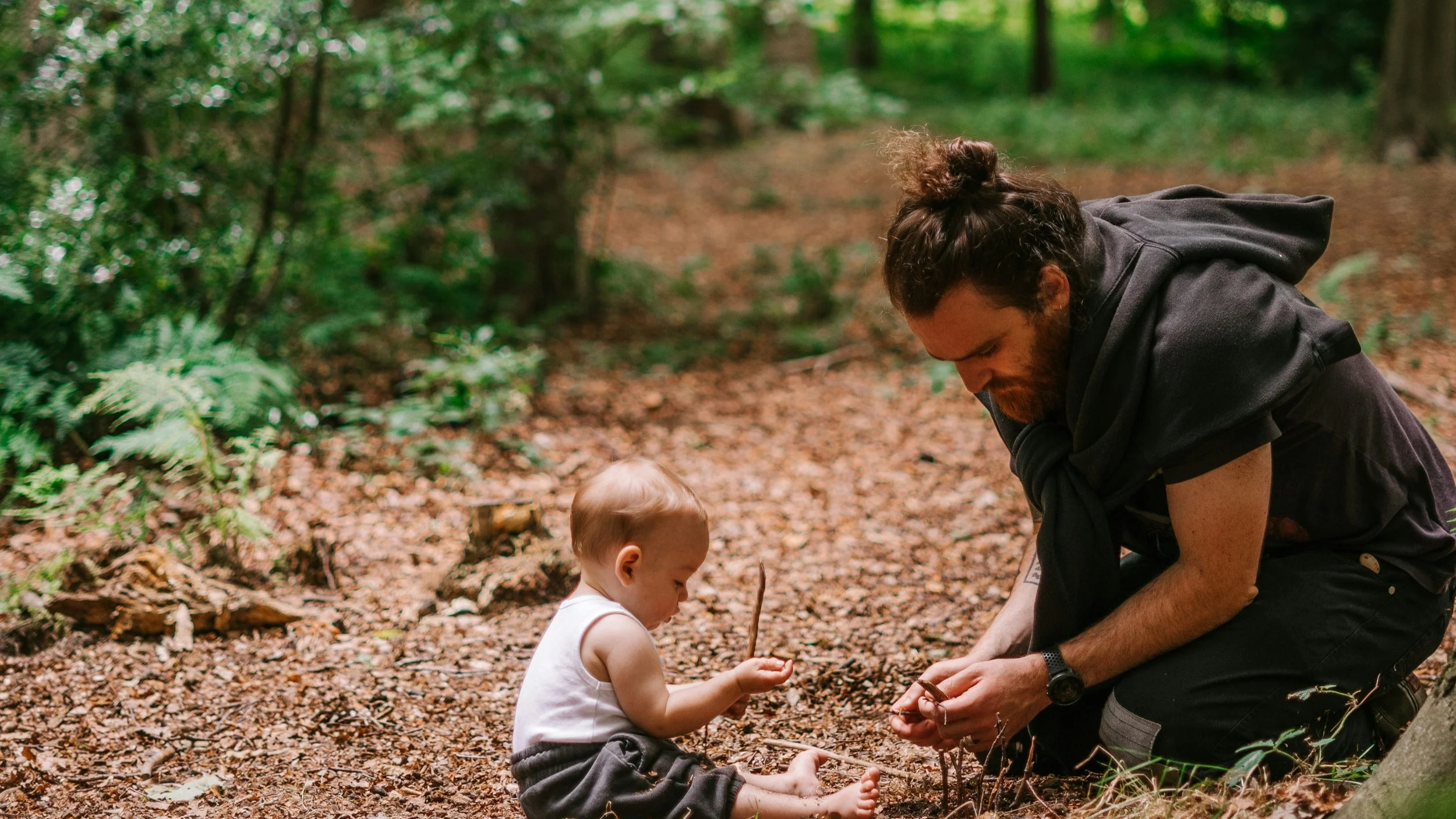The Mother Wound: When Your Child Gets What You Never Had
He watched his wife scoop their daughter into her arms, both of them dissolving into giggles over a made-up song about pancakes.
That familiar ping hit his chest. Sharp. Quick.
And, gone before he could name it.
Michael had everything he'd worked for—the family, the home, the life that looked whole from the outside. But watching his wife's effortless warmth with their children felt like watching through glass. He could see it. Touch it. But never quite feel it the way she did.
"Daddy's turn!" his daughter squealed, arms reaching.
He lifted her, held her close. Did all the right things. Said all the right words. He loved loving her—the weight of her in his arms, her absolute trust, the way she melted into him. But alongside the love lived a pang. A bittersweet ache he couldn't name.
When Parenting Your Own Child Triggers Your Inner Child
I've been sitting with Michael's story for months now, turning it over in my mind like a stone worn smooth by water.
See, his inner child was witnessing his daughter receive what he never had, and it hurt in ways that don't have words.
Just that ping.
That ache.
That watching-through-glass feeling so many of us know.
Michael came to therapy at 42. Senior partner at his firm. Devoted father. The guy everyone called when they needed something fixed.
"I should be happy," he said in our first session, hands gripping his knees.
"I have everything I wanted. But there's this... ache. Like I'm watching my life instead of living it."
He described how his daughter's "I love you, Daddy" made him want to cry and run simultaneously.
How his wife seemed to speak some secret language of tenderness he'd never learned.
When Grief Was Etched Into Michaels Life | The Tuesday Morning That Changed Everything
Michael's mother left when he was three. Not through death—which might have been easier to understand—but through choice. She just... left. Walked out one Tuesday morning and never came back.
This is abandonment trauma in its purest form. Not just losing someone, but being left by someone who chose to go.
His father did his best.
Taught him to throw a baseball, fix a car, shake hands firmly. Loved him deeply, completely. But that love was tainted by his own grief—the loss of his wife colored every tender moment with sadness.
"My dad was amazing," Michael insisted. "He gave me everything he could."
And he did.
But children need more than grief-soaked love.
They need what Donald Winnicott called "holding"—not just physical, but psychological. The capacity to contain overwhelming feelings and reflect them back as manageable.
Without this, the nervous system never learns that feelings won't destroy you. That vulnerability leads to connection, not abandonment. That needing someone isn't the same as losing them.
Survival Strategies | How We Adapt Around the Absence
You know what breaks my heart? How brilliantly children adapt to survive. it’s both brilliant and heatbreaking at the same time.
Michael became everyone's problem-solver. The guy who could build anything except emotional intimacy.
What looked like strength was actually scar tissue.
Calm in crisis. Unshakeable under pressure.
His nervous system had learned that needing soothing was dangerous—better to never need at all.
I kept thinking about Kelly McDaniel's words in "Mother Hunger"—that the “mother wound” isn't about blaming mothers.
It's about finally admitting what was missing so we stop trying to squeeze blood from stones.
So we stop dating emotionally unavailable people hoping this time will be different. So we stop performing for love that should have been free.
Michael had dated women who were either distant or overwhelming. Professional powerhouses who traveled constantly. Anyone whose attention he had to earn, over and over. He was still three years old, trying to be good enough to make mother stay.
"I thought I was just bad at relationships," he said. "Turns out I was terrified of what I wanted most."
The Inner Healing Work That Changes Us
Here's what I've learned after 15 years of sitting with attachment trauma.
Healing doesn't happen through insight alone. Understanding your patterns perfectly doesn't rewire a nervous system that learned love equals danger.
Michael had to feel the grief first. Not the dramatic grief of loss, but the quieter grief of never having had. The complicated grief of a mother who's still alive somewhere in California, still choosing to stay away.
We'd touch the grief for maybe 10 minutes. Then resource. Then touch it again. This pendulation—what Peter Levine calls the rhythm of healing—let his nervous system learn he could survive feeling the loss.
The rage came next. Oh, the rage.
"I hate her," he said one day, surprising himself. "And I hate that I hate her. And I hate that I still want her to come back."
This complexity—loving and hating, wanting and rejecting—had to be honored. Not cleaned up or resolved, but held in all its contradiction.
Then came the hardest part: learning to receive. Like someone allergic to the medicine they need, Michael's system rejected care. We started small. Could he let my steady presence land for two minutes without deflecting? Could he let his wife's hand on his shoulder stay without tensing?
The Night Where Michael’s Heart Stretched Wider Than Before
Eight months in, Michael's daughter had a nightmare. She crawled into bed between her parents, seeking comfort. As his wife pulled her close, that familiar ping hit his chest.
But this time, instead of bracing against it, he breathed into it.
The ping wasn't pathology. It was recognition. His nervous system saying: "That. That's what we needed. That's what we never got."
Instead of fleeing the feeling, he stayed with it. And for the first time, he reached over and placed his hand on both of them—his wife and daughter. Not to give, but to receive. To be part of the comfort, not just witness to it.
His daughter grabbed his hand in her sleep. Pulled it to her chest.
And Michael's body—for the first time in 39 years—softened completely.
Now, I’m turning to you, Dear Reader…
If you recognize yourself in Michael's story—the ping, the ache, the watching-but-not-quite-living—I need you to hear this:
The wound isn't your fault. The absence shaped you but doesn't define you.
Michael still feels the ping sometimes. But now he knows what it is—not brokenness but memory. Not pathology but brilliant adaptation.
The hole is still there—it always will be. But less of the ache.
Like a broken bone that's healed but still feels the weather change. Present but not consuming. Part of his story but not his whole story.
He's becoming the parent he needed. Not perfect, but present. Giving his children what he didn't receive while learning to receive it himself through them.
Because here's what I've learned: The deepest wounds often carry the seeds of the deepest wisdom. The unmothered become the most conscious parents. The untouched become the most deliberate in their tenderness.
---
I'd love to hear your thoughts. Does this resonate?
What's your experience with the wounds that shape how we love? If you feel bold, comment below, and if not, take this to reflect in your journal, with your therapist or. friend.
Live in New York and Seeking a therapist to dive into this deeper?
Book a FREE 15 minute consult to start your journey!
If you’re looking for more support, and would like to do some PARTS work with a trained therapist, we are here for you. At Integrative Psychotherapy, we have a team of therapists who are trained in science based methods, EMDR, Somatic Therapy & creative modalities, to help you process through pain and help you be more present in life.









